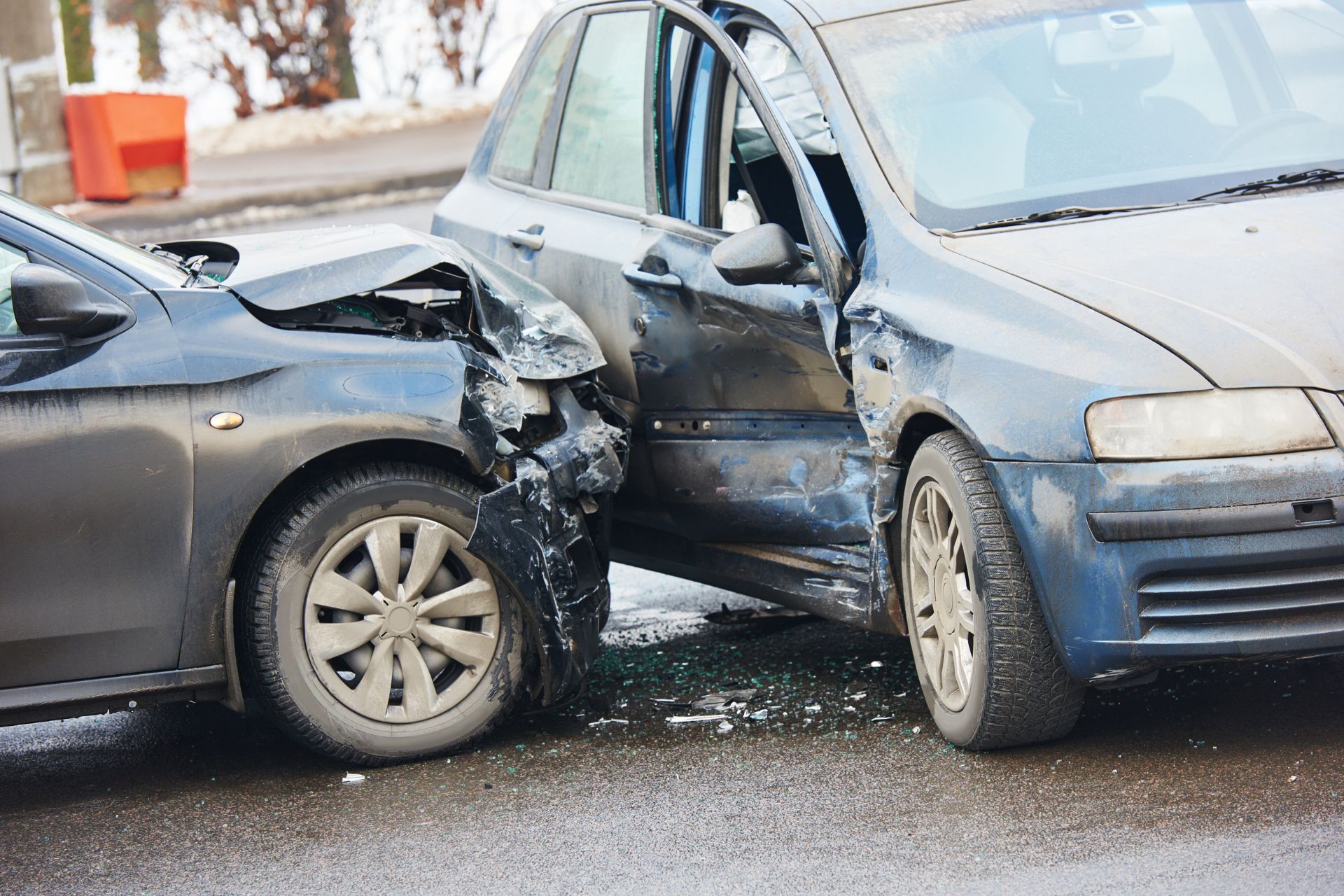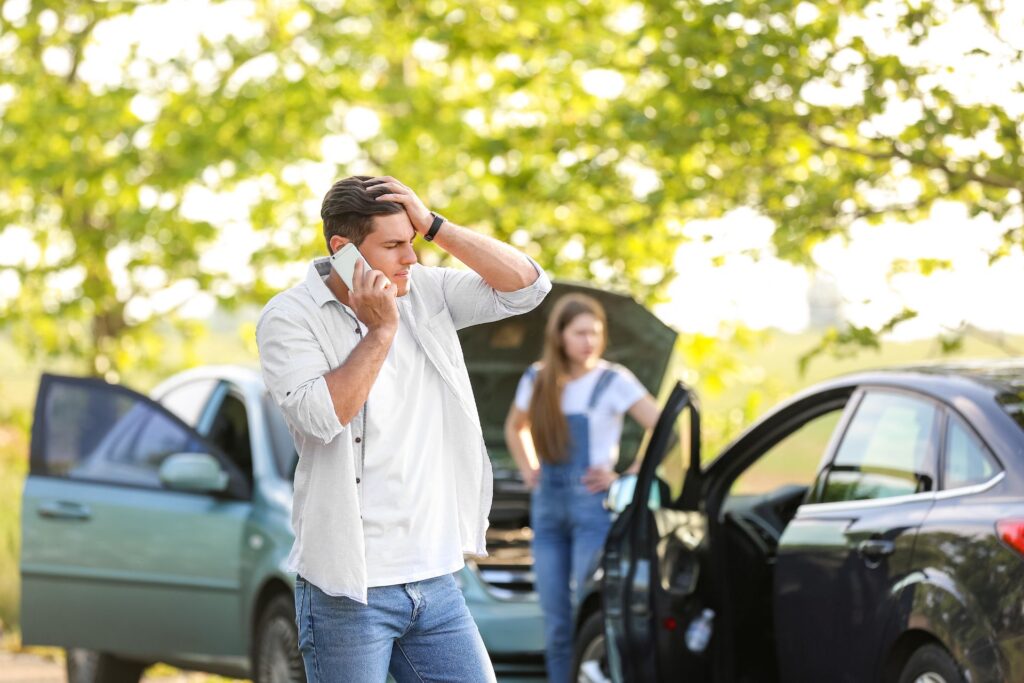Understanding the intricacies of a car accident is important, not just for individual protection, but also from legal and
We will delve into the things you should do immediately after the accident, such as setting up warning signs and gathering necessary information. The importance of regular vehicle maintenance in preventing accidents will also be discussed, along with the risks associated with old tires.
The interaction with other drivers after an accident often plays a significant role in determining outcomes. Hence, we’ll explore why direct interactions should ideally be avoided and how police intervention can help maintain order during these stressful times.
Then, we will outline the procedure for notifying your insurer about the accident and how an
In addition to physical implications, like spinal injuries or property damage resulting from car crashes, there’s often an overlooked psychological impact, which we aim to shed light on as well.
Lastly, while it’s unpleasant to think about fatalities, understanding these realities is a part of comprehensively dealing with the aftermath of a car accident.
Immediate Actions After a Car Crash
Car crashes are scary, but knowing what to do right after can help to effectively manage the situation. First, ensure your safety by setting up warning signs, like orange cones or warning triangles. This prevents further accidents caused by oncoming traffic.
Setting up Warning Signs
Alert other drivers that there’s been an accident by setting up warning signs. This gives them time to slow down and navigate safely around the crash site.
Checking for Injuries and Gathering Information
Check all involved parties for injuries. If anyone has been hurt, dial emergency services right away. Once everyone is safe, gather necessary information, such as license plate numbers from all drivers involved.
Documenting the Scene
Document the scene thoroughly. Take pictures if possible, which could prove invaluable when dealing with
Taking these immediate actions after a car accident ensures everyone’s safety and prepares you for any legal proceedings that may follow. Stay safe on the road.
Regular Vehicle Maintenance Importance
It’s better to prevent a car accident than to deal with its consequences. Regular vehicle maintenance, such as making sure the tire pressure is accurate, is an effective way to prevent accidents.
The Role of Tire Pressure in Preventing Car Crashes
Tire pressure significantly affects your vehicle’s handling and braking capabilities. Underinflated tires may reduce steering precision, lower cornering stability, and increase stopping distance, which could lead to an accident. It’s, therefore, very important to regularly check your tire pressure using a reliable tire pressure gauge.
Risks Associated with Old Tires
Apart from tire pressure, the age of your tires also matters. Since rubber can degrade, older tires are more prone to blowouts. Even if they look fine on the outside, internal damage can make them unsafe for use. Therefore, replacing old tires is another essential aspect of regular vehicle maintenance.
- Maintaining proper tire pressure helps ensure safe driving conditions.
- Replacing old or worn-out tires reduces the risk of unexpected blowouts while driving.
Interaction With Other Drivers After a Crash
While it’s tempting to speak to other drivers after a car accident, it’s best to avoid direct interaction. This can lead to more harm than good, so wait for police intervention.
Why Direct Interaction Should Be Avoided After A Crash
Directly interacting with other drivers after an accident can escalate tensions and potentially lead to conflict. Emotions are high, blame may be assigned prematurely, or statements made in the heat of the moment could later be used against you in legal proceedings or by
The Role Of Police Intervention Following An Accident
Police officers play a crucial role after an accident, as they objectively document the scene and gather necessary information from all parties involved. They also make sure that everyone at the site is safe. An official report from the police is essential when filing an
It’s important to maintain composure and follow these guidelines to manage stress and protect your rights. Remember that understanding your responsibilities and maintaining proper etiquette after an accident can help you get through the situation.
Insurance Notification Procedures Post-Crash
Being involved in a car accident is a total bummer. Notifying your
Timely Notification of Your Insurer Post-Crash
Most
How an Insurance Claims Professional Assists During These Times
An
Aside from providing guidance on what repairs are covered under your policy or how much rental vehicle reimbursement you’re entitled to while your vehicle is repaired, they will also assist with arranging inspections or coordinating directly with auto repair shops on your behalf.
In summary, promptly communicating with your insurer after a car crash not only fulfills contractual obligations, but also speeds up financial and emotional recovery by reducing the uncertainty of out-of-pocket expenses.


Preventive Measures to Reduce Collision Risk
Reduce your chances of getting into a car accident by practicing defensive driving techniques. This means being alert and prepared for unexpected situations. Stay vigilant and leave ample space between cars, concentrate on the road, and stick to posted speed limits.
Defensive Driving Techniques That Minimize Risk
- Maintain a safe following distance: Tailgating can lead to rear-end collisions.
- Avoid distractions: Texting while driving significantly increases the risk of an accident.
- Observe speed limits: Speeding reduces reaction time and increases the severity of accidents.
Where you park your vehicle also plays a significant role in preventing accidents. If possible, try to park away from heavy traffic areas. If you must park near busy roads, ensure that your vehicle is visible to passing drivers by turning on your hazard lights or placing reflective triangles behind your car.
Safe Parking Practices
- Park away from high-traffic areas whenever possible to minimize chances of getting hit by another vehicle.
- If you can’t avoid parking near a high-traffic area, make sure your car is visible to other drivers who might not see it because of poor lighting conditions or other issues, such as bad weather.
Be vigilant and practice caution when parking to reduce the chances of a car accident. Stay alert and stay safe.
Physical Implications of Car Crashes
Car crashes can leave survivors with more than just visible injuries. Trauma and harm can significantly change people involved in a car accident.
Common Physical Implications of Car Crashes
Survivors often experience head trauma or neck injuries, including whiplash, caused by rapid back-and-forth movement of the neck. Spinal trauma is also common, leading to potential long-term mobility issues. High-speed collisions can also result in upper body injuries, such as broken bones.
Dealing with Serious Bodily Harm Resulting from Auto Incidents
Damage to internal organs, such as the stomach and intestines, can happen in severe accidents. Pelvic fractures are among the most serious injuries because of its proximity to vital organs and major blood vessels. Some injuries may not have immediate symptoms, but can have lasting effects if left untreated. Therefore, seeking immediate medical attention is very important even if you feel fine.
As an insured motorist involved in a car crash, it’s very important to be aware of your rights and responsibilities. A personal injury lawyer can guide you through this process effectively while ensuring that your interests are protected throughout the proceedings.
Psychological Impact of Auto Accidents
Car accidents don’t just leave physical scars. Then often inflict deep psychological wounds that can be even more challenging to heal. Survivors may face mental health struggles, such as depression, anxiety and post-traumatic stress disorder (PTSD), after a vehicular accident.
Mental Health Issues Arising from Vehicular Accidents
The sudden shock and fear from a car accident can trigger severe PTSD symptoms, including flashbacks, nightmares, and uncontrollable thoughts about the accident. Moreover, survivors may develop phobias related to driving or riding in cars, which could significantly affect their daily lives.
Anxiety disorders are another common outcome of car accidents. Constantly worrying about getting into another accident can lead to panic attacks and general feelings of unease when behind the wheel or on the road.
Legal Assistance Available for Dealing with Psychological Impact
If you’re experiencing psychological distress because of an accident, don’t delay seeking professional help. Therapy or counseling can provide coping strategies for effectively managing your symptoms.
In addition to medical treatment for your mental health conditions, legal assistance is also available. A personal injury lawyer will assist you in calculating total damages you might be entitled to receive. This includes not only medical expenses but also compensation for lost wages due to missed work, as well as pain and suffering caused by emotional distress. Learn more here.
Fatalities Resulting From Severe Organ Trauma Or Sudden Instant Death Due To Massive Impact Energies
Accidents, with their potential for catastrophic outcomes, must not be taken lightly. That’s why it’s important to know your rights and responsibilities as an insured motorist. Remember, you have a duty to report the accident promptly to your
Regular vehicle maintenance and defensive driving techniques can greatly reduce the severity of automobile accidents. If, however, a crash occurs, seeking medical attention right away is vital. Even if you don’t see any visible injuries, there could be internal organ damage that needs immediate attention.
If the accident results in death, families left behind may need legal help navigating the complex procedures associated with wrongful death claims.
What to Do After an Accident
After an accident, it’s important to stay calm and take the following steps:
- Check for injuries and call 911 if necessary
- Exchange information with the other driver(s)
- Take pictures of the scene and any damage
- Report the accident to your
insurance company
Preventing Accidents
While accidents can’t always be prevented, there are steps you can take to reduce the risk of an accident:
- Practice defensive driving techniques
- Maintain your vehicle regularly
- Avoid distractions while driving
- Never drive under the influence of drugs or alcohol
At all times, prioritizing your safety while driving is paramount.
FAQs in Relation to A Car Crash
How Can I Write About a Car Crash?
Be factual, empathetic, and clear, detailing the circumstances, injuries, damage, and legal implications.
How Do I Explain a Car Crash Story?
Focus on sensory details, character reactions, and consequences, such as physical injuries or psychological trauma.
What are the Impacts of a Car Crash?
- Physical: Injuries ranging from minor cuts to serious bodily harm.
- Mental Health: PTSD and anxiety disorders may develop post-crash.
- Economic: Financial burden due to medical bills, vehicle repair costs, and potential lawsuits.
What are Common Feelings in a Car Crash?
Shock, confusion, and fear immediately after impact, with physical pain and psychological distress, such as guilt or panic.
Why Should I Avoid Speculation in Car Crash Writing?
Speculation or assumptions about the cause or outcome of a car crash can be harmful, so stick to the facts.
Should I Avoid Graphic Details in Car Crash Writing?
Avoid graphic details of car crashes and personal experiences or anecdotes about them, as they can be triggering for some readers.
Should I Blame Other Parties in Car Crash Writing?
Avoid blaming any party for a car crash without proper evidence, as it can be unfair and inaccurate.
Additional Resources
For more information on car crashes, visit NHTSA or CDC.
Conclusion
Dealing with a car crash can be scary, but following these tips can help reduce your risk of accidents and prepare you if you’re involved in one:
- Take immediate action after a crash and prioritize safety.
- Regularly maintain your vehicle to prevent accidents.
- Avoid direct interaction with other drivers after a crash and promptly notify your insurer.
- Seek legal assistance for physical and psychological implications caused by car accidents.
- Implement preventive measures, such as defensive driving techniques and safe parking practices.
Remember to protect yourself physically, emotionally, and legally if you or someone you know has been involved in a car crash.



